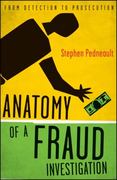This is micro econ
say countries #1 and #2 are not trading with each other. say country #1's rate of product transformation is 3. country #2's rate of product transformation is 1. would economists argue that these two countries should change production and engage in trade with each other? say country #1's rate of product transformation is 3. country #2's rate is 1. what would happen to the total quantity of good 2 produced by the two countries if country #1 decreases production of good 1 by 1 unit while country #2 increases its production of good 1 by 1 unit? suppose policy A will only affect the welfare of three people. individual $1's WTP for A is $3,000; individual #2's WTP for A is $1,000; individual #3's WTAC for A is $1,200. If policy A is adopted, will everyone be better off than if it's not adopted? OK, only 3 individuals are affected by A. individual $1's WTP for A is $3,000; individual #2's WTP for A is $1,000; individual #3's WTAC for A is $1,200. what would happen if we adopted policy A and at the same time, imposed taxes of $800 on individuals #1 and #2, and paid $1,600 to individual #3? individual $1's WTP for A is $3,000; individual #2's WTP for A is $1,000; individual #3's WTAC for A is $1,200. no one else is affected by this policy. does it pass the benefit-cost test? when a policy passes the benefit-cost test, the economist recommends adopting it. what is the logic behind the recommendation? in the above questions, individuals have different WTP's and WTAC's. is that possible? why or why not (what determines a person's WTP, WTAC). here we have an individual with a WTP and a WTAC for policy x. is that possible? why or why not? we can determine what makes a person better and worse off by observing that person's behavior (and extrapolationg from those observations). This is because a person ----- on the basis of their ---A---, and A is what determines the welfare effect of a change in a person's consumption of goods. say a policy - such as one that would lead to a deterioration in air quality - would lead to people dying before they would otherwise die. Then it is absolutely impossible to evaluate this policy using benefit-cost analysis. true or false. why is that







